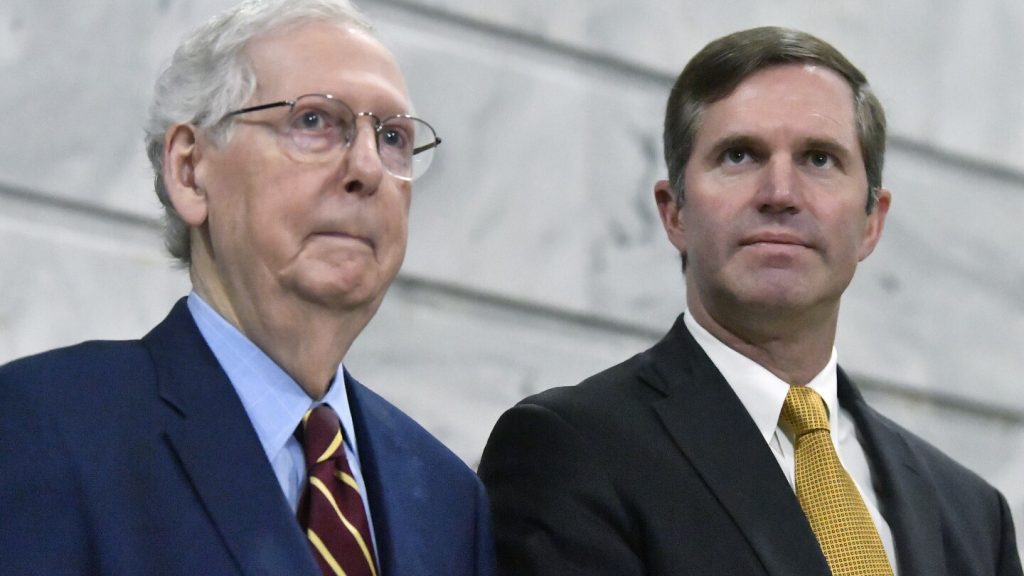In a controversial move, Republican lawmakers in Kentucky have passed a bill that removes the Democratic governor from any role in filling future U.S. Senate vacancies. This legislation calls for a special election to fill any Senate vacancy in the state, with the winner holding the seat for the remainder of the unexpired term. The move comes at a time when the health of the state’s senior senator, Republican leader Mitch McConnell, has come under scrutiny. McConnell, who recently announced his decision to step down from his Senate leadership position, had reassured the public about his health following a fall last year.
The bill, which was easily approved by the GOP supermajority Legislature, marks a significant shift from the previous system where the governor had the power to appoint a successor to a Senate vacancy. This change in the process of filling a Senate vacancy has raised concerns about the implications for the closely divided Senate, especially in a time when partisan lines are deeply entrenched. Other measures rejected by the governor on the same day include a criminal justice bill that imposes harsher sentences for various crimes, as well as a measure promoting nuclear energy in coal-producing Kentucky.
Governor Andy Beshear, who voiced his opposition to the Senate succession bill and other vetoed measures, argued that the changes undermine the authority of the administration and represent a departure from the long-standing system in place since 1942. He raised concerns about the potential costs associated with the criminal justice bill, which includes provisions such as a “three-strikes” penalty that could result in lifelong incarceration for felons after a third violent offense. Supporters of the bill argue that it is necessary to hold criminals accountable and make communities safer, while opponents warn of increased taxpayer costs with no guarantee of reducing crime rates.
Senator McConnell, who has not indicated whether he will seek reelection in 2026, has expressed support for the Senate succession bill as a way to let voters decide on a successor in the event of a vacancy. While the legislation has received bipartisan support, some critics view it as a politically motivated move to limit the governor’s authority. Republican lawmakers, however, maintain that their focus is on ensuring a fair and transparent process for filling Senate vacancies, in line with their longstanding policy stance on the issue.
The passage of the Senate succession bill highlights the ongoing power struggles between political parties in Kentucky and underscores the complex dynamics at play within the state’s political landscape. As the debate over the implications of these legislative changes continues, it remains to be seen how the new process for filling Senate vacancies will impact future political decisions and the overall governance of the state. The overriding of the governor’s vetoes signals a significant shift in the balance of power within Kentucky’s legislative and executive branches, setting the stage for potential challenges and conflicts in the future.


